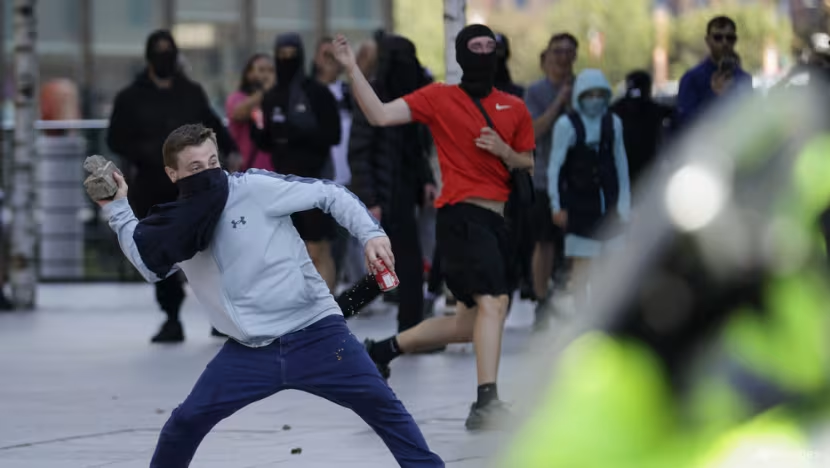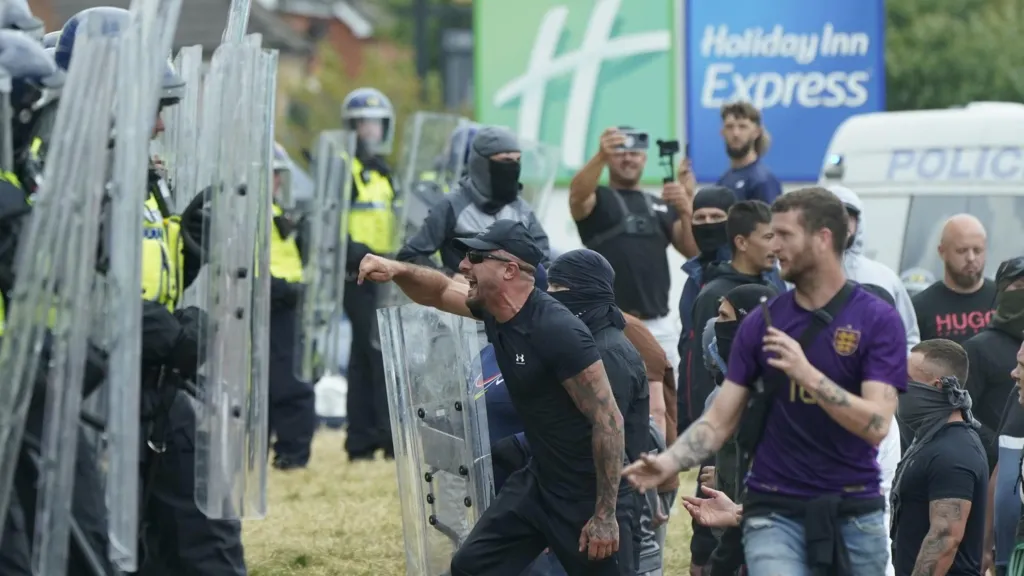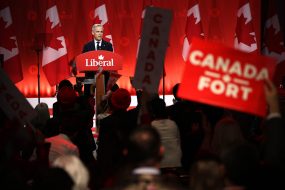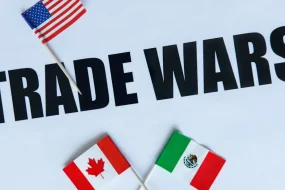
The United Kingdom is currently experiencing a wave of intense protests that have gripped the nation, fueled by a combination of social, political, and economic factors. The protests began primarily as anti-immigration demonstrations but have rapidly escalated into broader unrest, including incidents of violence and vandalism across several cities.
The immediate catalyst for these protests was a tragic event in Southport, where a knife attack led to the deaths of three young children. This incident, perceived by many as linked to broader immigration issues, ignited a series of far-right demonstrations. In cities such as Tamworth and Rotherham, these protests turned violent, with far-right groups targeting migrant hotels. Buildings were set ablaze, and clashes with the police resulted in multiple injuries and arrests.

The protests have not only resulted in injuries to dozens of police officers but have also highlighted deep-seated issues related to race, immigration, and online radicalization. While far-right figures and groups have capitalized on the tragedy to incite further violence, there is also a broader public debate about the responsibilities of social media platforms in preventing the spread of harmful misinformation.
The initial outrage escalated after false claims spread online, wrongly asserting that the perpetrator was a Muslim immigrant. This led to a series of far-right demonstrations across the country, beginning outside a mosque in Southport, where protesters clashed with police, throwing objects and causing significant damage. Similar protests erupted in other cities, including London, Hartlepool, and Manchester, where demonstrators expressed anger using slogans like “save our kids” and “stop the boats”.
Beyond the immediate violence, the protests have broader socio-political implications. They reflect deep-seated tensions within British society regarding immigration, economic inequality, and social justice. The unrest has also drawn attention to the role of social media in mobilizing and inflaming public sentiment. Videos and images of the protests, particularly the more violent episodes, have been widely circulated online, contributing to a heightened sense of crisis and urgency.

Compounding the issue is the public’s frustration with the current state of the economy and social services. Many protesters express discontent with what they perceive as inadequate government response to pressing issues such as housing, healthcare, and employment. The confluence of these grievances has created a volatile environment, with protests now encompassing a broader spectrum of social and political causes beyond the initial focus on immigration.
In response to the ongoing crisis, the government has announced a series of measures aimed at quelling the violence and addressing public concerns. These include increasing police presence in hotspot areas, initiating community dialogue initiatives to address the root causes of the unrest, and reviewing policies related to immigration and public safety. The authorities have also made calls for calm, urging the public to refrain from further violence and engage in constructive dialogue.
Prime Minister Keir Starmer has strongly condemned the violence, attributing it to “far-right hatred” and emphasizing the deliberate nature of the unrest. The UK government has responded by deploying additional police resources and implementing a National Violent Disorder Program to manage the situation. This program includes enhanced cooperation among police forces and the use of facial recognition technology to identify those involved in the riots. The government is also considering measures to address the role of social media in spreading misinformation, which has been a significant factor in fueling the unrest.
As the situation continues to unfold, the UK faces a complex challenge in addressing the root causes of these protests, ensuring public safety, and fostering a more inclusive society. The coming weeks will likely see further developments as authorities work to prevent additional violence and hold those responsible accountable.












